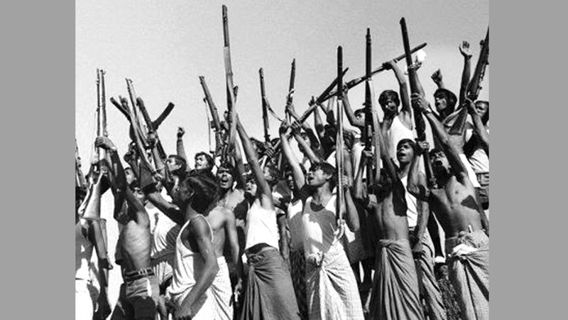
Bangladesh Liberation war : A Heroic Strugle of Independence
Introduction:
The Bangladesh Liberation War, also known as the Bangladesh War of Independence, was a historic conflict that took place in 1971, resulting in the emergence of the sovereign nation of Bangladesh. Driven by a quest for self-determination, the people of Bangladesh fought against the oppressive rule of West Pakistan. This war not only shaped the destiny of a nation but also became a symbol of resilience and courage for oppressed people worldwide.
Historical Context:
The roots of the Bangladesh Liberation War can be traced back to the partition of India in 1947, when the British Raj was divided into two separate nations: India and Pakistan. Pakistan consisted of two geographically distinct regions, East Pakistan (present-day Bangladesh) and West Pakistan (present-day Pakistan). However, the cultural, linguistic, and economic differences between the two wings of Pakistan created a deep sense of imbalance and resentment.
The Struggle Begins:
The struggle for independence gained momentum in East Pakistan during the 1960s. The Awami League, led by Sheikh Mujibur Rahman, demanded greater autonomy and rights for East Pakistan. The Pakistani government, however, responded with repression and denied the people of East Pakistan their rightful democratic representation.
The Turning Point:
The turning point in the Bangladesh Liberation War came on the night of March 25, 1971, when the Pakistani military launched a brutal crackdown against the Bengali population. Operation Searchlight, as it was called, aimed to suppress the independence movement by targeting intellectuals, politicians, and civilians. The atrocities committed during this operation were unprecedented, with widespread reports of mass killings, rape, and arson.
The Resistance:
In the face of such horrific violence, the people of Bangladesh united in their determination to break free from Pakistani oppression. The Mukti Bahini, a guerrilla force composed of Bengali freedom fighters, launched a fierce resistance movement. They engaged in guerrilla warfare, sabotage, and targeted attacks against Pakistani military installations, effectively destabilizing the occupation forces.
International Support:
The Bangladesh Liberation War garnered significant international attention and support. India, as a neighboring country, played a crucial role by providing sanctuary, training, and arms to the Bengali rebels. The Indian government, led by Prime Minister Indira Gandhi, also offered diplomatic support to Bangladesh and condemned the atrocities committed by the Pakistani army.
Victory and Independence:
After nine months of intense fighting, the Pakistani forces surrendered to the joint command of the Mukti Bahini and the Indian military on December 16, 1971. Bangladesh emerged as an independent nation, and Sheikh Mujibur Rahman, popularly known as Bangabandhu (Friend of Bengal), became the country's first Prime Minister.
Legacy and Impact:
The Bangladesh Liberation War left an indelible mark on the nation's history and identity. The war's significance extends beyond Bangladesh, becoming a symbol of hope and inspiration for oppressed people worldwide. It serves as a reminder that the desire for freedom and dignity can triumph over tyranny and oppression.
Today, Bangladesh continues to build upon the ideals of the liberation war, striving for economic development, social progress, and political stability. The sacrifices made during those turbulent months in 1971 serve as a reminder of the resilience and bravery of the Bengali people, inspiring future generations to safeguard their hard-earned independence.
Conclusion:
The Bangladesh Liberation War represents a remarkable chapter in the struggle for self-determination and freedom. Through their unwavering spirit and
Follow Dibyo Tulyo to stay updated on their latest posts!
0 comments
Be the first to comment!
This post is waiting for your feedback.
Share your thoughts and join the conversation.
